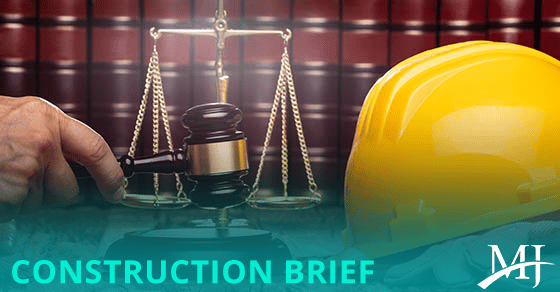Many construction businesses are structured as C corporations. If that’s the case for your company, you’re probably aware that C corporations usually prefer to classify payments to owners as tax-deductible wages because it lowers corporate taxes. However, as you’re likely also aware, if the IRS believes that an owner’s compensation is excessive and unreasonable, it may claim that payments are disguised dividends — and deny deductions for them.
Earlier this year, in Clary Hood, Inc. v. Commissioner, the U.S. Tax Court found that a construction company owner wasn’t entitled to the deductible amounts he’d claimed in two tax years and that he was subject to a penalty. But there was some good news for the taxpayer.
Deductions redetermined
The company involved in the case primarily provided land grading and excavation services for construction projects in the South Carolina region. The owner founded the business with his wife and, together, they served as the sole shareholders and members of the board of directors.
Using a multifactor test, the Tax Court found that the taxpayer failed to adequately establish how the deductible amounts being claimed for each of the two tax years were both reasonable and paid solely as compensation for the owner-founder’s services.
However, the court didn’t deny the deductions. Rather, it redetermined the deductible amounts of compensation that the owner-founder could claim. The taxpayer could still deduct up to the redetermined amounts — which were less than what he’d originally claimed but still more than what the IRS was arguing for.
The court noted various factors were most relevant and persuasive in reaching its conclusion. These included:
- The taxpayer’s distribution history,
- How the owner-founder’s compensation was set in the years at issue, and
- His involvement (day-to-day activities) in the business.
The court also heard testimony from an expert, who included compensation for surety bond guaranties in his analysis and provided a well-reasoned salary comparison against industry standards.
Penalty applied
Another interesting aspect of the case was whether the owner-founder should be subject to the accuracy-related substantial understatement penalty for both tax years.
To wit, the court didn’t uphold the penalty against the construction company and its owner-founder for the first of the two tax years. Although the taxpayer’s understatement was substantial for both years, the evidence demonstrated reasonable cause and reasonable reliance on professional advisors for the first year.
Notably, the taxpayer showed that the company’s advisors were competent professionals with sufficient expertise to justify reliance and no inherent conflicts of interest. The owner-founder also provided evidence that the advisors were given all relevant information and that he relied on their advice.
However, the court upheld the accuracy-related substantial understatement penalty for the second year. This is because the taxpayer provided almost no evidence regarding professional advice received in calculating the deduction amount. Although the owner-founder alternately claimed substantial authority for his position and the use of a certain test to determine the deductible amount, he failed to prove substantial authority to claim the amount.
A strong defense
As this case shows, the IRS will challenge deductions for owner compensation that it deems unreasonable. However, as the case also demonstrates, thorough documentation and expert advice can help owners of C corporations defend themselves. We can assist you and your construction company’s co-owners in determining reasonable compensation amounts.
Clary Hood, Inc. v. Commissioner, No. 3362-19, March 2, 2022 (U.S. Tax Court)
© 2022




